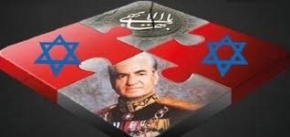However, it is obvious that this cult has involved in many changes and movements of the contemporary history of Iran. One of these involvements was the Baha’is struggles in changing Reza Khan Mir Panj from an unknown Cossack to the king of Iran. Undoubtedly; according to the Iranian history, Baha’ism and the British Colonialists caused him to gain power.

The issues and events which had been created for the Baha’is in Qajar periods of time and the communications created by the Baha’is in the new Iran after with the British government after the Russian Revolution ended in their cooperation with the black coup movement and the start of prime ministry of Seyyed Zia’uddin Tabatabaee and the emergence of Reza Khan. Some researchers believe that the measures of several Baha’is late Qajar periods of time such as terroristic operation of punishment committee and creating fear and terror among people caused Qajar dynasty be extincted and Pahlavi government be established. Several documents reveal that the assembly of Baha’ism in Iran discovered Reza Khan by its agent in Iran called Habibullah Einul Mulk years before 3rd of Isfand coup and introduced him to the British Colonialists for coup.
Concerning the Baha’is function in 1299 coup, two issues are worthy to be mentioned: 1) Their relationship with Zargandeh committee and 2) Baha’is relationship with Ardeshir reporter.
Sir Ardeshir played a key role in electing and strengthening Reza Khan to gain the command of an army of cossaks and 1299 coup. He came to Iran to organize the spying net of England late Naseruddin Shah’s period of time. From that time to the end of his life, he played a key role in Iran’s transformations in favor of the British policy.
One of the other organizations related to Britain which played a main role in 1299 coup was iron committee whose Tehran branch was called Zargandeh one due to its activity in Zargandeh region. The mentioned committee was first established by Colonel Hague in Isfahan city. The role of Baha’ism in this committee can’t be hidden. It started with two following aims:
1) Destruction of Jungle Movement
2) Influencing on government and the military forces to gain power of controlling the country.
In Seyyed Ziauddin Tabatabaee’s cabinet, one of the first heads of Baha’is called Mouqerudduleh who was one of Ali Muhammad Bab’s relatives became the minister of agriculture and business. This position was bestowed to him due to the Baha’is services in the victory of the coup.
Hassan Nikou (the former Baha’i proselytizer who turned to Islam) wrote a book against the Baha’ism cult.
Seyyed Muhammad Kamarei points out the background of the cooperation between Ipakis with the Baha’is when Vosouqudduleh’s was minister.
During Reza Khan’s period of time, the Baha’is commemorated Reza Khan as a good man in their meetings and considered his anti-religion policies and confronting against the scholars as due to Reza Khan’s interest in Baha’ism cult. Reza Khan’s unveiling policy which indicated his opposition against Islam was in accordance with their logic and rule.
Consequently, it can be concluded that one of the factors of ruling Pahlavi government on the Iranian people for 57 years has been the deviant cult of Baha’ism.
 English (UK)
English (UK)
 فارسی
فارسی 



